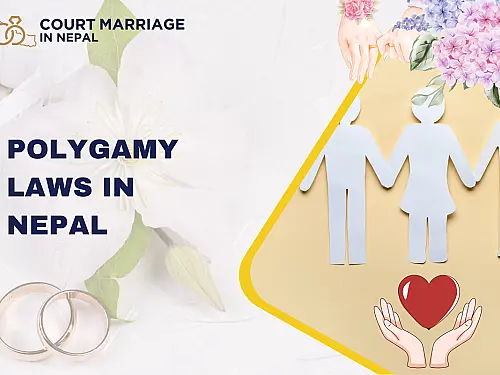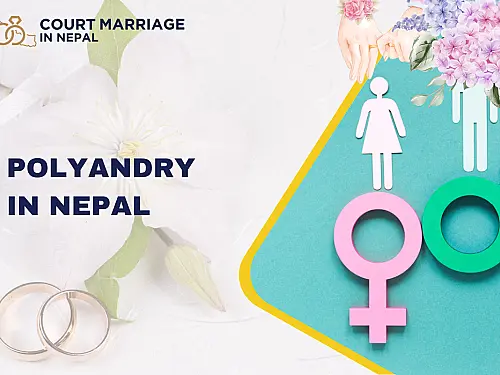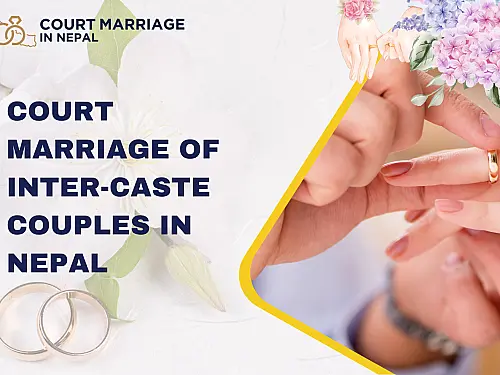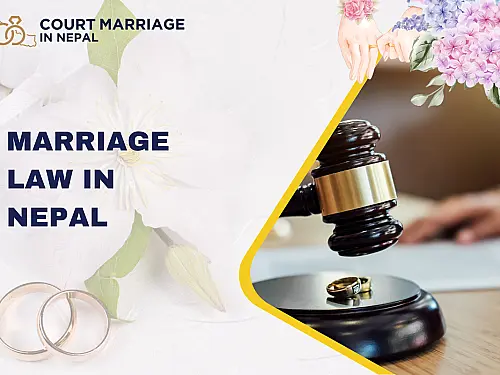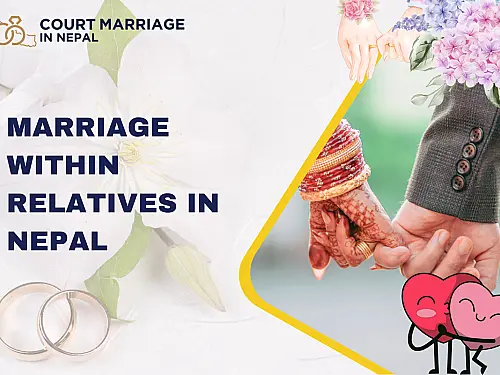Table of Contents
Marriage in Nepal is not just a celebration of love and tradition—it’s also a legal bond recognized and protected by national law. Today, many couples are choosing court marriage for its simplicity, legal strength, and growing acceptance. But what exactly does court marriage mean in Nepal? Let’s break it down clearly and completely.
What is Court Marriage in Nepal?
Court marriage in Nepal refers to the legal registration of marriage between two consenting individuals at the District Court, without requiring traditional religious ceremonies. It is recognized under the Muluki Civil Code 2074 (2017).
In simple words:
→ Court marriage is a civil, formal legal process that allows couples to be married officially by law, regardless of caste, religion, or family traditions.
It is particularly popular among:
- Inter-caste couples
- Interfaith couples
- Nepali and foreigner couples
- Couples seeking a simple, quick, and fully legal marriage registration
Legal Basis of Court Marriage in Nepal
Court marriage is backed by the Muluki Civil Code 2074, specifically Sections 67 to 84, which outline:
- Eligibility conditions (age, consent, mental capacity)
- Prohibition of marriage within certain blood relations
- Requirements for valid registration
- Procedures for registration at the District Court
The law ensures that a marriage done through court marriage is equally valid and legally enforceable as one conducted via traditional rituals.
Court Marriage vs Traditional Marriage in Nepal
| Feature | Court Marriage | Traditional Marriage |
|---|---|---|
| Ceremony | Legal, no religious ceremony required | Religious or cultural ceremony |
| Location | District Court | Temple, venue, or family home |
| Timeline | 1–2 working days (if documents ready) | Often days or weeks, depending on rituals |
| Legal Status | Immediate with marriage certificate | Requires post-marriage registration |
| Witnesses Required | 2 adult witnesses | Depends on custom and tradition |
| Popular For | Inter-caste, interfaith, foreigners | Traditional families and ceremonies |
In short: Court marriage is chosen for speed, simplicity, and guaranteed legality, whereas traditional marriage is more about customs and community celebration.
Step-by-Step Process of Court Marriage in Nepal
Here's how court marriage typically works:
1. Verify Eligibility
- Both individuals must be at least 20 years old.
- Both must be unmarried, widowed, or divorced.
- Both must be of sound mind.
- Must not be within prohibited blood relationships.
2. Prepare Documents
- Citizenship certificates
- Single status certificate (from ward office)
- Passport-sized photographs
- For foreigners: Passport, visa, No Objection Letter (NOC), translated marriage law
- Temporary residence certificate (if applicable)
3. Submit Application
- File an application at the District Court along with all supporting documents.
4. Court Appearance
- Appear before a judge along with two witnesses.
- Consent must be provided verbally and in writing.
5. Receive Marriage Certificate
- Once approved by the judge, the Marriage Certificate is issued, officially recognizing your marriage.
The entire process can be completed within 1–2 working days if all documents are prepared properly.
Importance of a Marriage Certificate in Nepal
Holding an official court-issued marriage certificate is crucial because it:
- Grants legal proof of your marriage.
- Secures inheritance rights and property ownership.
- Facilitates visa applications and immigration procedures.
- Assures spousal rights regarding healthcare, pensions, and insurance.
- Is internationally recognized for legal and social matters.
Without this certificate, even a religious ceremony does not automatically guarantee legal protection!
Why Choose Court Marriage?
Couples opt for court marriage in Nepal for many reasons:
- Speed: Registration in as little as 1–2 days.
- Privacy: Especially helpful for inter-caste, interfaith, or socially sensitive marriages.
- Simplicity: No need for elaborate ceremonies or expenses.
- Cross-national Marriages: A quick and clear legal path for Nepali–foreigner unions.
- Legal Assurance: Immediate legal standing once the certificate is issued.
It’s a perfect fit for modern couples valuing efficiency, equality, and legality.
Is Professional Assistance Necessary?
While you can file for court marriage independently, many couples prefer to use a marriage lawyer or legal consultant to:
- Verify all documents in advance
- Prepare consent affidavits correctly
- Liaise with embassies for foreigners
- Coordinate with the court for faster hearing dates
- Avoid rejections or bureaucratic delays
Hiring expert help is especially useful if you are:
- A foreigner marrying a Nepali citizen
- In an inter-caste or interfaith relationship
- On a strict time schedule (like visa deadlines)
The additional cost is nominal compared to the time, stress, and risks you save.
Conclusion: Court Marriage - A Modern, Legal Path for Nepali Couples
Court marriage in Nepal represents the future of legal union—simple, equal, inclusive, and fully protected under the law. Whether you are a Nepali couple breaking cultural barriers, an international couple building a new life, or simply two people seeking efficiency, court marriage offers a quick and secure path to your happily-ever-after.
With the right guidance, documents, and preparation, you can formalize your love story in just a few days—legally, proudly, and confidently.
Frequently Asked Questions
At Court Marriage In Nepal, a registered law firm operating as Court Marriage In Nepal Pvt. Ltd., we specialize exclusively in Court Marriage Nepal. As the first law firm in Nepal dedicated to court marriage services, we assist both Nepali citizens and foreign nationals with the court marriage registration process in Nepal, including complete legal support for court marriage registration for foreign citizens in Nepal. As a trusted marriage firm in Nepal and a licensed law firm in Nepal, we ensure a smooth, lawful, and stress-free experience. Contact us today for confidential assistance with court marriage registration in Nepal.


